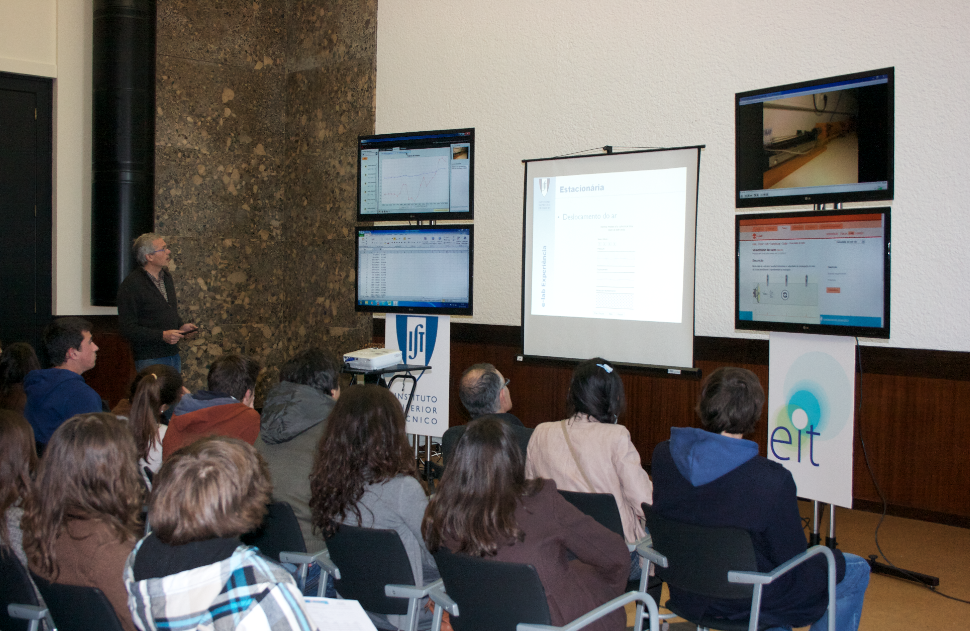We now have videos of some of our experiments in the Video Gallery.
These were captured in HD (1280×720 px) @ 120 fps. This means you can download them and watch it in slow motion.

We now have videos of some of our experiments in the Video Gallery.
These were captured in HD (1280×720 px) @ 120 fps. This means you can download them and watch it in slow motion.
Two new experiments have been release with the support of Escolher Ciência: one about the Boyle-Mariotte Law and another to study linear momentum conservation.
What’s interesting about these experiments is that, although they are connected to e-lab, they are not physically at e-lab HQ! Each is setup at a high-school and were built and maintained with the help of teachers and students, although they are connected to the e-lab mainframe and can be accessed through the platform.
Together with World Pendulum, they make up a new wave of off-site apparatus. We intend expand the list and are now looking for other high.schools that are willing to collaborate with us.
Who likes this idea:
e-lab now has it’s own channel on Youtube! You can check it out here.
We leave you with our first video:
The e-lab team is working on a new project: the World Pendulum.
By studying and comparing how a simple gravity pendulum behaves in different points of the globe, we can see how the standard gravity is related to geographical coordinates. You can read more about it here here.
This week, a group of students from the Athens programme are at IST to have a course on data analysis, retrieving data from several of the e-lab experiments.
Little by little the e-lab International Portal is growing!
We now have an Image Gallery that will host pictures of the setup’s, schematics and all sorts of pictures that will be useful for teachers and students that wish to talk about e-lab.
Explore House Iberia was presented at IST for high school students. The aim of this activity was to demystify the use of remote labs and to train teachers and students on the e-lab platform usage. Moreover it was an important event to transmit a technological and innovative image of IST and UTL to future students and to publicize their courses in a fashionable way.
Explore House, through e-lab, allows the InnoEnergy community, students and general public from different backgrounds and locations, to do measurements and scientific experiments in a virtual environment, with the possibility for simultaneous users and connecting different remote laboratories.
The Explore House e-lab is a complement to normal laboratories where everyone can do remote experiments, collect it’s data and afterwards analyze the results.
Although e-lab is not intended to replace hands-on experiments it can be a way to share remote experiments among users and to allow data interpretations taken from experiments otherwise unreachable.
